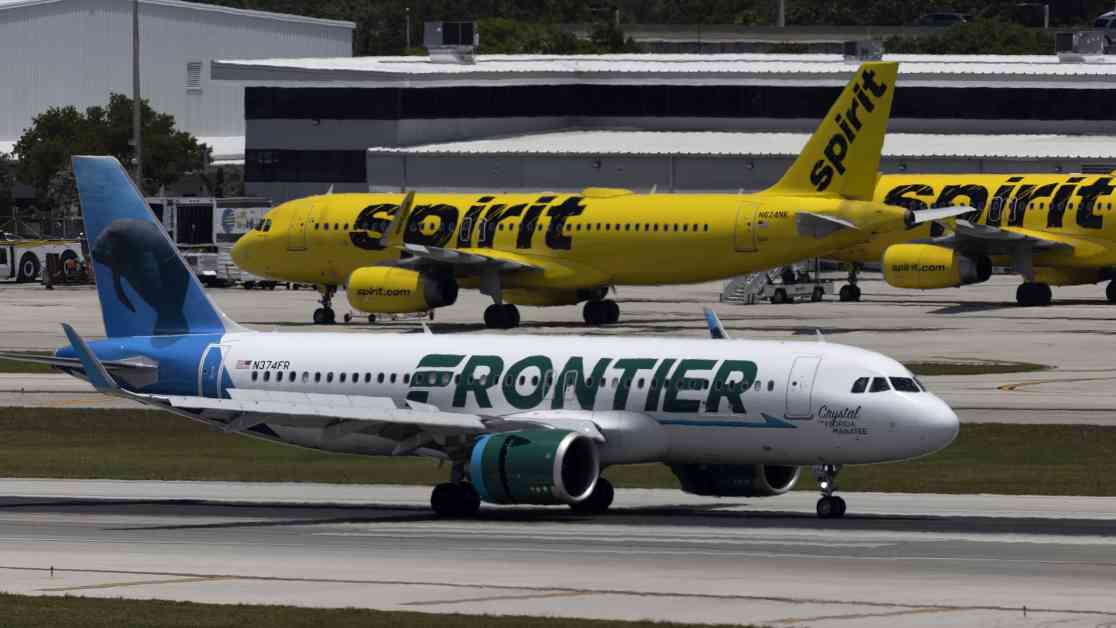Frontier Airlines and Spirit Airlines Merger Proposal: A Closer Look
In a surprising turn of events, Frontier Airlines has once again proposed a merger with its struggling competitor, Spirit Airlines, which is currently navigating bankruptcy proceedings. The proposal, which was unveiled earlier this month, marks a significant development in the tumultuous relationship between the two budget carriers.
The Backstory: From Initial Deal to Bankruptcy
Frontier and Spirit initially announced their intention to merge back in 2022, only to have their plans thwarted by a competitive offer from JetBlue Airways. The proposed acquisition by JetBlue was eventually blocked by a federal judge, paving the way for Spirit to file for bankruptcy protection in November of the same year.
Fast forward to the present, and Frontier has once again set its sights on a potential merger with Spirit. In a recent communication, Frontier executives emphasized the superiority of their proposal over Spirit’s standalone plan to emerge from bankruptcy. The urgency of the situation was underscored by Frontier Chairman Bill Franke and CEO Barry Biffle in a direct appeal to their counterparts at Spirit, highlighting the critical need for swift action.
Rejecting the Deal: A Game of Corporate Chess
Despite Frontier’s persistence, Spirit’s leadership has firmly rejected the proposed merger, citing the terms as “inadequate and unactionable.” This stance was made clear in a letter shared in a securities filing, signaling a potential stalemate between the two airlines as they navigate the complexities of the negotiation process.
Looking Ahead: The Road to Recovery
While the merger proposal may have hit a roadblock, both Frontier and Spirit are actively pursuing strategies to navigate the post-pandemic challenges facing the airline industry. Spirit, in particular, is on track to exit Chapter 11 bankruptcy this quarter, thanks to a series of cost-cutting measures that include job reductions and the sale of aircraft.
The broader landscape for budget carriers has been challenging, with rising costs and shifting consumer preferences reshaping the competitive environment. Frontier and Spirit have responded by revamping their business models, moving away from traditional low-fare structures towards a more customer-centric approach that emphasizes value-added services and amenities.
Embracing Change: Adapting to the New Normal
In a bid to attract and retain passengers, both airlines have eliminated cancellation and change fees for select tickets and introduced bundled perks to enhance the overall travel experience. Frontier, in particular, has introduced a premium section at the front of the plane, catering to travelers seeking additional comfort and convenience during their journey.
As the aviation industry continues to evolve in response to changing market dynamics, the ongoing saga between Frontier and Spirit serves as a microcosm of the broader challenges facing airlines in the current climate. The outcome of their negotiations remains uncertain, but one thing is clear: the future of air travel is anything but predictable.
In the ever-changing landscape of the airline industry, the proposed merger between Frontier Airlines and Spirit Airlines has captured the attention of industry insiders and passengers alike. As these two carriers navigate the complexities of the negotiation process, the ultimate fate of their relationship remains shrouded in uncertainty. Only time will tell whether a merger is on the horizon or if both airlines will chart their own course towards a brighter future.



















